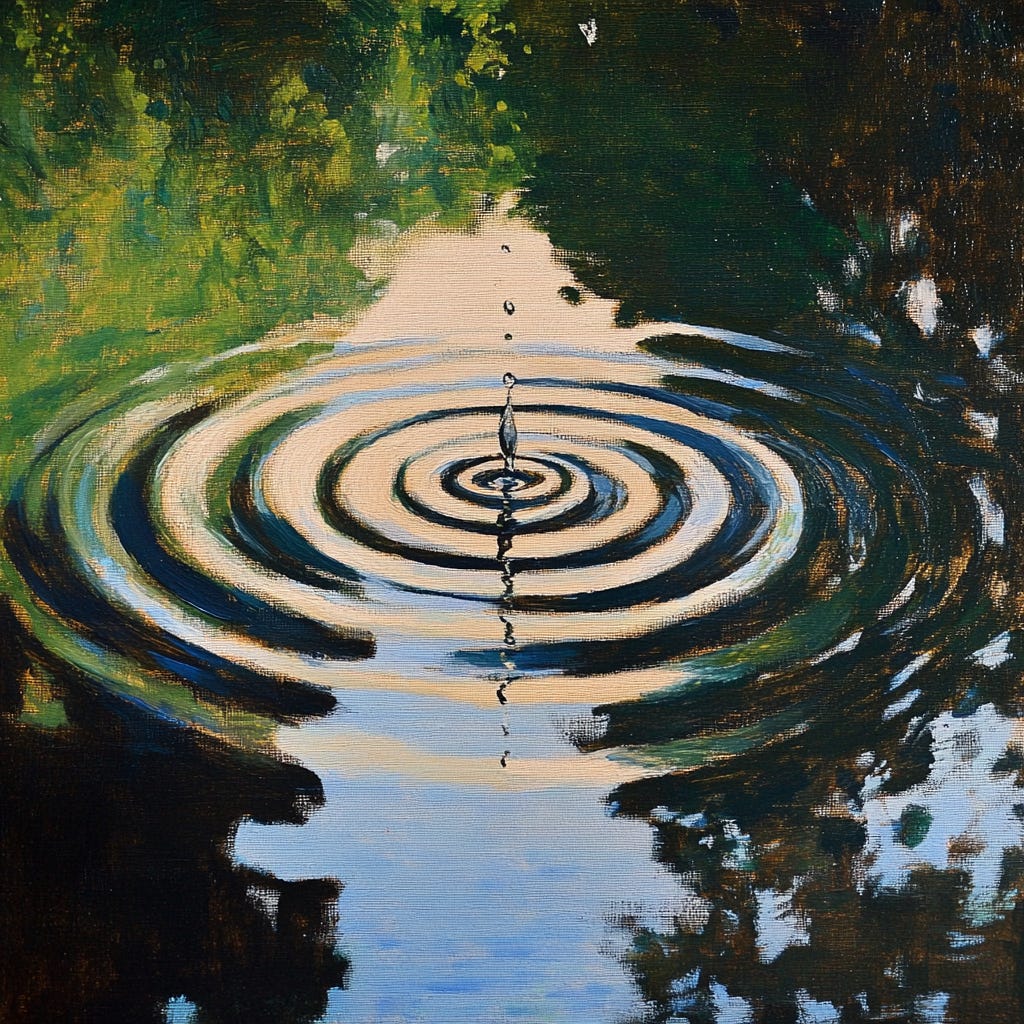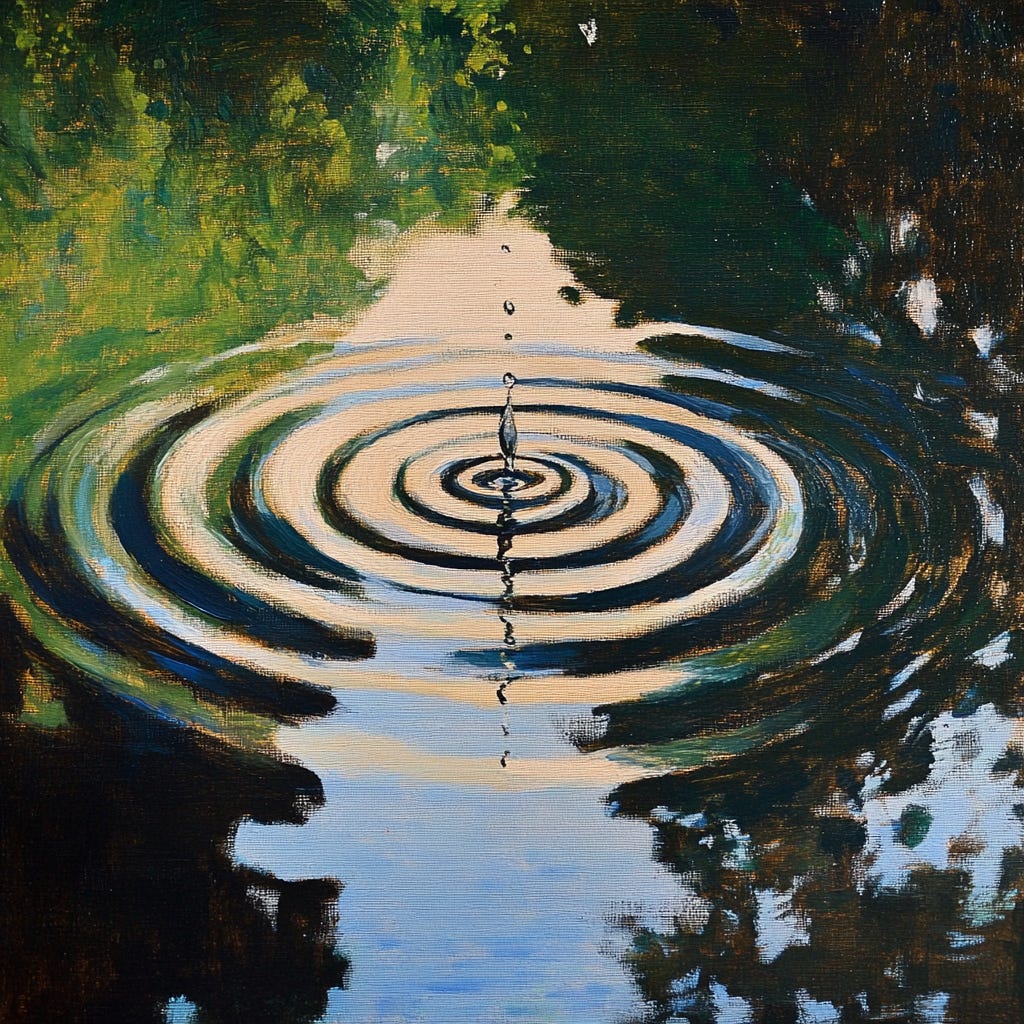Gentle Reader,
Ex-Irish rugby coach Joe Schmidt had a philosophy of ‘winning the moment.’ Instead of focusing quite broadly on tactics, his principal direction to his players was to make the next tackle, catch the next ball, look for the next pass.
In a way, it’s the same as how kids play sport. They don’t ‘zoom out’ and think about the implications of the choices they make in every moment of a match. Instead, they do what the moment calls for – they focus on the next thing, on executing it as well as they can, allowing them to get into flow state.
As an approach, I like it and it seems highly generalisable – I believe many people are too strategic in their lives.
Generals always fight the last war
In many enterprises in life, we are called upon to be strategic. In a war, an army general must have a strategy. For example, the first combat army tanks appeared in World War I, and by World War II the usage of battle tanks was central to the land strategy employed by both the Allies and the Axis. The Germans famously employed Blitzkrieg to overwhelm enemy lines, a strategy which proved initially successful. Later in the war, the Soviets mass-produced tanks much more quickly than the Germans, which allowed them to repel the German advance during Operation Barbarossa, and eventually helped to turn the tide as the Soviets retook territory and advanced into Germany.
A new military doctrine was born: large numbers of tanks were central to military success.
Fast forward 80 years, to when we saw Russian tanks rolling across the Ukraine border. On paper, the Russians had about 12,000 tanks, whereas Ukraine had about 2,000. Such a large delta between the two was a bad sign for Ukraine.
However, it turns out that warfare had moved on. Tanks, once viewed as almost indestructible, can now be blown up with anti-tank missiles and drones which cost a fraction as much to produce as the tank itself. And so, we saw the power of such tanks as being greatly diminished.
In this respect, the Russian generals were fighting the last war, which hindered them in the current war.
All is fair in love and war
Being strategic is not a problem per se. However, it is almost impossible to know the optimal strategy for just about any objective in our lives, due to the stochastic nature of reality.
And when you don’t have the right strategy, and you rely on an old strategy, you miss the cues which would have lead you to a superior course of action, which is why I like Schmidt’s ‘winning the moment’ cue.
An example from day-to-day life:
Tom meets Sally. They develop a relationship. Eventually, Sally finds that Tom is distant and not loving, and she attacks him about his fear of commitment, and dumps him. Tom is single and sad. He takes time out and works on himself and learns to be more open, to be able to receive and give more love. This is good. He re-enters the dating market, but with every new woman he is nervous and tries to get the point across that he is committed and someone who can love. This strategy fails since he has skipped the rituals applicable to the early stage of relationships, and he is projecting past needs and dynamics onto a new context where they may not belong. Tom needs to win the moment and, all that work he has done on himself will come into play, if and when the time arises.
Similarly, if Tom decides to start doing yoga because he has heard it is a good way to meet women, his strategy will probably let him down. Sweating and shaking in downward-facing dog, he is not truly winning the moment – men and women are attracted to those who pursue their own desires and curiosities, who seek their own truths, rather than faking an interest in order to meet a woman.
Tom’s strategy will be transparent to the zen ladies who, sitting criss-cross applesauce, intuitively understand that he is there on false premises, and they will not be attracted to him.
Why Greatness Cannot Be Planned: The Myth of the Objective
Strategy is often tied to objectives. You want to become rich, so you start a software company. Then you realise you know nothing about software, and you fail.
On the other hand, Steve Jobs was tinkering around with technology since he was a kid. At the age of eleven, he rang Bill Hewlett, the co-founder of Hewlett-Packard, to ask for spare parts to build a frequency counter for a school project. Jobs didn’t want to get rich, he just wanted to finish his project. Hewlett was so impressed that he offered Jobs a summer job at HP. Jobs eventually became wealthy because he pursued his interests doggedly, not because he wanted to become rich.
The book ‘Why Greatness Cannot Be Planned: The Myth of the Objective’ (thanks
for the rec), speaks to this truth. Many of mankind’s greatest discoveries came about through the process of meddling and tinkering, of winning the moment in front of you. For example, Alexander Fleming famously discovered penicillin by observing that a mould in a contaminated petri dish killed bacteria. During the space-race, the advent of satellite technology turned out to have broader applications in warfare. And the development of combat radar itself led to the discovery that microwaves could cook food. In war, the provision of durable clothing such as chinos, fatigues and pea coats, eventually lead to the popular adoption of such clothing recreationally.The point is that the process of discovery often leads to novel applications, and that pursuing an objective expressly, rather than following your own curiosity, can be less effective, due to the puzzling and sometimes unknowable nature of reality.
Philosophy
‘Winning the moment’ also happens to be a more fun way to live your life. It’s not that you can’t have plans or goals or strategies, but that you must be open to changing tack and altering your course, when new information arrives or something intriguing happens. Rather than steadfastly sticking to your original plan, you must be flexible, you must win the moment which arrives, rather than the one you were expecting.
This little moment will not be just a moment. This little moment contains the whole world, in microcosm. James Joyce knew this. In his writing of Ulysses, a book which pays homage to the small details of life, he championed the idea that the particular is generalisable to the universal.
For myself, I always write about Dublin, because if I can get to the heart of Dublin I can get to the heart of all the cities of the world. In the particular is contained the universal.
Schmidt and Joyce are alike in this way. By focusing on the small detail which holds your interest, you may find it leads you to greater discoveries and greater works of art in due course, discoveries which could never have been successfully approached strategically.
There is a place in life for strategy, but you must be careful where you apply it. In the realms of chess and other board games, where a limited number of moves are theoretically possible, where human emotion and stochasticity don’t come in to play, where there are known knowns, known unknowns, you can apply your strategy. But very little of life is like that: life is full of unknown unknowns and of actions whose consequences exert ripple effects.
The path forward is never all that clear. But what is clear is the choice of the next step to take: which pathway intrigues you the most?
The next time you are stuck in your life, think about how you can follow an interest or win the moment you are in, rather than browbeating yourself about grand plans or goals or strategies. Happy discovering!
Thanks for reading! If you unstrategically pay for my work, a mass transfer of wealth will occur and I will become wealthy beyond my wildest dreams, and you will achieve a success unexpected in the common hours.
Affiliates:
My friend Paul Millerd runs the Pathless Path Community, a cozy online space where we support each other to find ways to live and work in the most authentic way possible.
I also recommend the Supernote e-ink device, which I use for reading, writing, and annotating documents. This affiliate link is only valid for EU customers.









My zone of comfort is strategy, I love the big picture and creating high level strategies. But your idea here is great, a bit similar to ‘follow your passion’. This one has become a bit cliché, but it also involves working at stuff that you like, day in and day out, and see what happens.
There is a place for strategy, and then there is a time for the regular tinkering with what moves you. It reminds me of your pond-making project.
The ideas you've written about here have been some of my main learnings over the past 5 years or so. I really love how you've illustrated it with the romance - I'm fully on board with your thinking here.
My arrival at this perspective was through complexity theory, mainly through Dave Snowden's Cynefin framework which focuses on contextually based decision making. Forgive me if you're already familiar with it, but the idea is that while rules based/KPI type decision making might work in ordered systems, this approach falls down in situations of complexity (aka, real life). Complex situations requires exactly what you talk about here - 'doing the next right thing' in alignment with a strategic direction, as opposed to pre-defined strategic objective. This whole concept is perhaps best captured by Anna's song in Frozen II: https://youtu.be/kFkClV2gM-s?si=AeDuQdhR_FFqhUuG